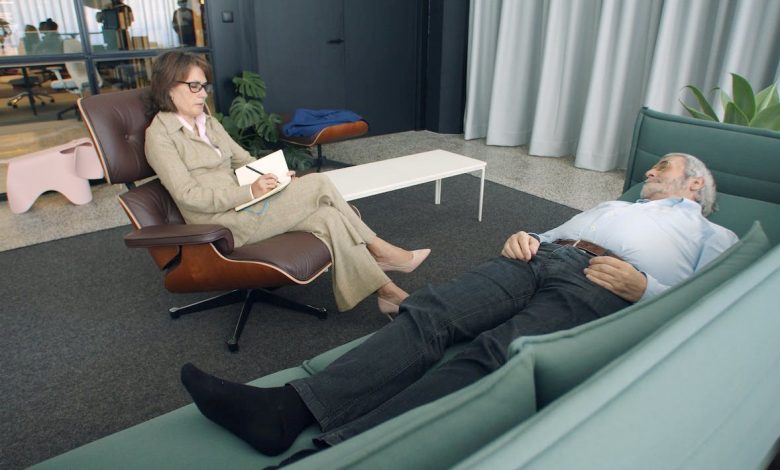The role of health counselors in improving mental and physical well being

Life always finds ways of throwing us a curve ball, affecting us psychologically and physically. Gradually with time, the impacts are reflected in our behavior, personality, and physical health. Sadly, knowing we have no control over the unprecedented events further adds to our misery.
While the fact remains that nobody has control over what happens in their life, there is always a solution to overcoming problems. You have courage and a strong belief that life is worth cherishing and living. Self-belief becomes stronger when you have a health counselor to guide you by hand and step-by-step. Counselors being trained professionals profoundly impact the lives of those who feel discouraged or lost.
Although counselors are mainly concerned with treating mental health conditions, physical health cannot be neglected. Physical and mental health are interrelated, with various mental health issues manifesting into joint pains or weight fluctuations.
Besides treating the client’s debilitating psychological conditions, counselors actively address their physical well-being. These professionals ensure not to overstep the line of treating psychological disorders and helping a client make healthy choices in life simultaneously.
As a trained professional, you are not only limited to counseling individuals. Your responsibility also involves educating the community, especially those from underdeveloped areas. Doing so requires the skills and expertise to impact the surrounding at an individual and community level positively.
To help individuals turn their lives around, you must complete higher education and gain relevant experience. Only after these requirements can you pursue the path of becoming an LPCC which stands for Licensed professional clinical counselor.
Finding solutions to physical and mental health issues requires collective professional effort, with health counselors actively involved.
Role of counselors in promoting physical health
People at risk of cardiovascular disease must change their lifestyles to lead healthy lives. Achieving that requires diet adjustments and incorporating physical activity into the daily routine.
Dietary Changes
Dietary changes usually begin with understanding the importance of every nutrient part of a healthy meal. By being educated on how every nutrient impacts the body, clients become aware of the pros and cons of each food group.
After understanding the significance of healthy foods, counselors help clients recognize their current eating habits. Doing so benefits the client in calculating the amount of healthy and unhealthy food they consume. The knowledge, in the end, helps clients make confident decisions regarding their diet and the outcome it leads to.
If the ratio of unhealthy food intake is more than the healthy one, then counselors guide the clients in adopting a more beneficial route. That is done by setting goals and identifying and ensuring that foods like sugar and carbonated drinks do not interfere with your eating habits.
Counseling aims to assess the individual needs regarding health or medical conditions. After a thorough evaluation, with the client on board, counselors use various strategies. These strategies include using portion control or finding alternative ways to prevent triggering unhealthy eating.
Staying on track involves body weight composition testing, dietary assessments, and scheduled weigh-ins. Nutritional changes are also essential at a community level in light of rising health issues. The effective strategy is to raise awareness through seminars and hold campaigns.
Physical Activity
Besides poor food choices, a sedentary lifestyle is the most common cause of health problems. However, many believe that lack of physical activity only contributes to physical illnesses. The truth is that inactivity is also the root cause of mental health disorders.
Promoting physical activity among individuals or communities is linked to treating psychological illnesses. Participating in an exercise releases chemicals like serotonin and endorphins that improve mood and reduce feelings of isolation or loneliness.
Physical activity counseling is a way of helping individuals increase their physical activity levels. The approach involves finding ways to incorporate physical activity into daily life. Aside from skills, counselors must be knowledgeable about physical activity.
These types of counseling are offered in various settings like workplaces, clinics, and educational institutions. Individuals seeking physical activity counseling go through stages of decision-making or behavioral changes.
Specific guidelines help increase activity levels and assist people in making behavioral changes.
The guidelines include;
- Evaluating the physical activity history.
- Client’s perspective on physical activity.
- Ensuring social support.
- Setting goals.
- Discussing relapse prevention.
The counselor holds a 40-60 minutes session, using these guidelines to aid clients in leaving behind the inactive lifestyle.
Role of counselors in improving mental health
When dealing with mental health issues, counselors offer support to individuals who have various emotional disorders. These professionals aim to target the inner struggles and problems that eventually manifest into distress.
Resolving core issues involves the implementation of techniques that primarily help individuals overcome obstacles. As a result, they gravitate towards leading healthier and happier lives. The guidance is often provided through one-on-one sessions.
After uncovering the root cause of the problem, counselors work with a person to develop potential solutions. What makes counseling a practical option for ensuring mental well-being is that it creates a safe space for discussing psychological issues.
Many don’t realize that avoiding counseling only aggravates mental health problems. Unlike family or friends, counselors are trained in understanding and finding solutions to the crisis.
Some of the most common issues counselors address are anxiety, alcohol or drug addiction, suicide, and abuse. While many specialize in a particular area, others usually work on general issues.
It is crucial to understand that the role of a counselor is not to fix the problem but to help clients understand issues and determine their own path to resolution.
Role in a team
Although many counselors work with individuals one-on-one, some work in a team. A counselor consults or coordinates with medical professionals to ensure the client gets the appropriate treatment.
Besides that, a counselor can assess an individual in a group setting. Counseling involves implementing various approaches per the professional preference and the client’s nature.
Many health counselors weave together the principles of various approaches deemed fit for the person to achieve better results. Often used independent approaches include cognitive behavioral therapy and solution-brief-focused therapy.
Conclusion
The growing health issues have highlighted the importance of physical and mental health. Counselors, in that regard, play their part by promoting health through various means. They adopt different approaches that address issues contributing to health concerns.
The outcome of implementing approaches is individuals leading healthy and happy lives. While counselors promote health at an individual level, they also impact surroundings.
That is done by educating the public and raising awareness through seminars, medical screening events, and leveraging social media. Counselors who are a part of change are valuable to promoting health at a broader level.






